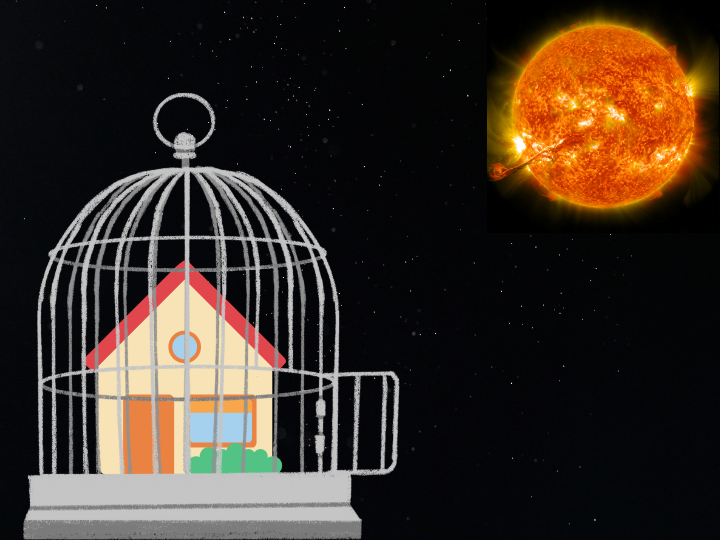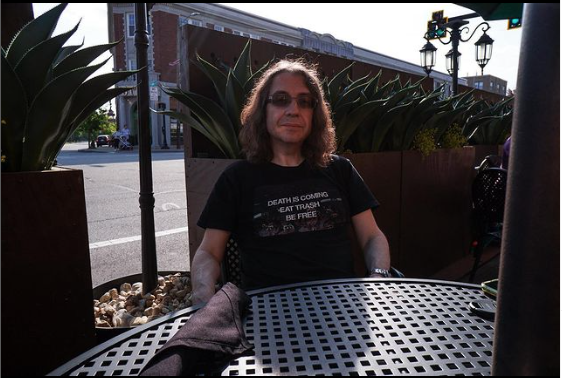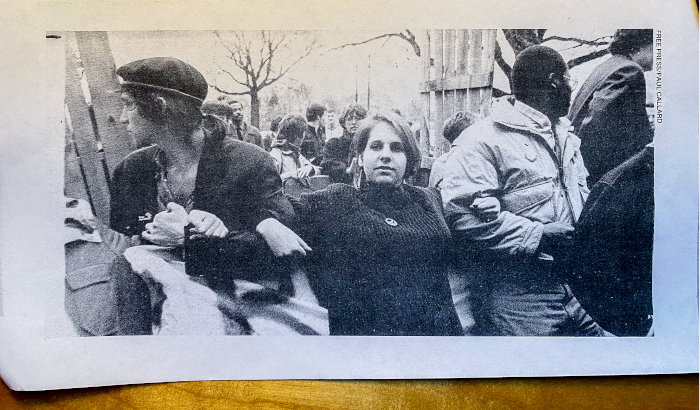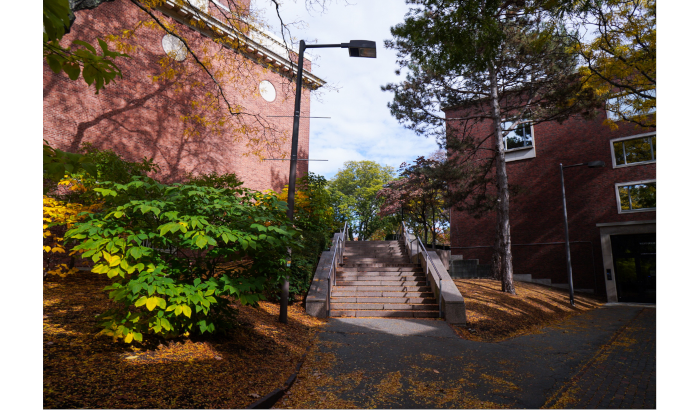For a growing number of people like me, global warming is already a serious and worsening health threat
Although I rarely mention it in print, I have had a very common airway disease since I was very small. Neither the worst nor the most mild version in my case. But bad enough to cause me to miss over 30 days of high school each year as a teenager—and to force me to explain to friends, coworkers, and extended family to this day why I can’t always participate in activities that most other people can. Because I never “outgrew it,” as my pediatrician told my parents I likely would.
Longtime readers will wonder how I did some of the things I managed to do in my past, which I have written about now and again, outdoors in less than ideal circumstances. The answer is that I did most of them when I was much younger and much more willing to take risks with my health. Note: more willing, not always more able. And all I can say is that I was lucky. Yet I generally paid a steep price for such actions. For example, when I get a simple cold, I typically get knocked off my feet and it might take me a couple of weeks to recover when others are on the mend in days from the same virus. Guess what happened when I was in places like Gaza sleeping in an open shed on a freezing January night with such a cold?
Speaking of viruses, like many immuno-compromised people, the COVID pandemic is not over for me. Having the health issues I have (including an exacerbating condition I picked up over the decades) if I get infected with one of the coronavirus variants, as with the less dangerous respiratory disease mentioned above, I can get much sicker than other people do. Even as I push 60. Thus, during spikes in case numbers like the one we’ve been going through this summer, I still wear a mask in public indoor spaces and avoid going out to eat (which has gotten really unaffordable anyway, no?) unless there’s outdoor seating and the day’s weather is favorable.
Which brings me back to our climate crisis. Cold, dry air is bad for me and, to my point, hot, humid air is very bad for me. And I have lived in and around Boston my entire life. With regional weather that treated myself and fellow residents to the “worst of both worlds” in terms of cold and hot (and infamously humid) weather even when I was growing up in the 1960s and 1970s—when we basically had a different, less extreme, climate.
Thanks to the ceaseless burning of carbon (oil, coal, and yes, the natural gas that is falsely claimed to be “clean”) for the last couple of hundred years, the Earth is heating up. Unenforced climate treaties and PR-focused “greenwashing” initiatives by major corporations and national, regional, and local governments around the world have done little to slow that inexorable process down, let alone stop it. As predicted by the environmental movement of which I have been part for over 40 years. Way too much money is being made by doing exactly the wrong things for our warnings to be heeded.
Climate scientists and activists alike have either been ignored or attacked viciously from on high. To the point where many working people with everything to lose have absorbed so much false information from the fire hose of propaganda on climate spewing forth every minute of every day from carbon corporations and conservative political organizations that they are understandably unable to separate fact from fiction on the climate crisis.
Not that climate scientists can currently promise to reverse global warming. They cannot. But most continue to make suggestions about how humanity might be able to at least slow down the heating of our air, land, and sea while researching ways to stop this human-induced crisis before it makes parts of the planet unlivable for people in the not-so-distant future.
As the climate gets worse, more and more people are finding it harder and harder to live comfortably. Those of us with any of the numerous medical conditions affected by rising temperatures around the planet are discovering that we are what I’ll call “canaries in a carbon trap.” We’re stuck trying to survive weather and weather-related disasters that can quite literally kill us. From which people are indeed dying needlessly and dying younger than they otherwise would. Leading people like me to spend more of each year stuck indoors where we hopefully have at least some control over air temperature, humidity, and air quality.
When “heat domes,” like the ones we’re getting more of year by year, settle over regions like New England (or entire nations as we experienced in the lower 48 this summer), people who are unhoused, can’t afford air conditioning, and/or don’t work in air conditioned spaces are dying on the brutally overheated and often extremely humid streets, at their jobs, and in their apartments or houses. Hell, some better-off people are even dying on summer vacation from trying to engage in activities like hiking that were safer even five years ago. Such conditions are persisting for longer and longer periods of time. Leading to the nearly two-week heat wave we experienced around much of the northeast this summer and several other shorter heat waves besides.
People like me can be ok during these periods as long as we can afford to own and run air conditioners. But that assumes that we stay in that air conditioning until the heat wave ends–which many people can’t do. And most adults have to work jobs outside their homes and perform an array of necessary errands—which assumes that they have cars. Yet many people, particularly in major cities, don’t have cars and must use public transportation that generally requires walking to a bus or train stop, waiting for a ride, then walking to wherever they need to go. On streets that often lack tree cover and are covered in asphalt and concrete that absorb solar radiation and intensify temperatures on the ground.
Needless to say, America’s rising homeless and prison populations are suffering the most, generally going without air conditioning for all or most of every day of every heat wave. As are workers (and prisoners) who must labor outdoors with little or no cover and no protection from either heat or merciless humidity (where it is present). As is anyone who can’t afford cars or public transportation or lives in any of the large swathes of the US that don’t have proper public transportation and has to walk from place to place. People in those situations are dying of respiratory failure, heart attacks, and heat stroke more frequently as the world keeps heating up.
But people further up the ever-steeper economic ladder like me are facing danger as well. Because what happens when people absolutely have to go out in extremely hot weather with health issues like the ones I face? And what happens if they can’t drive or don’t own a car? What if they can’t get a car service in a timely fashion because more people are using them during heat waves?
And what happens as global warming gets worse and ever worse and our still-mostly-carbon-based power systems fail—as was the case in the greater Houston area earlier this summer? Because our energy infrastructure wasn’t built to handle the kind of high temperatures we’re getting or because of increased energy usage to power all the air conditioners in service during heat waves or because global-warming-powered storms knock out critical infrastructure or because of problems with the carbon supply chain coupled with carbon industries and allies doing their level best to stop our civilization from switching over to genuinely clean energy alternatives like solar, hydro, and wind?
What happens, as we’ve seen in places like Europe where most people still don’t have air conditioners even when they can afford them, is that vulnerable people like me–particularly older people—die in the streets and in their homes. Because they have nowhere else to go. Even the “cooling centers” that some cities, including Boston, have set up as stopgap measures are not always open 24/7 when temperatures and humidity don’t even drop sufficiently at night for people to cool down. And not all cities offer people rides to such centers either. Nor are all the people who need them physically able to get to them (and may not even know about them). Plus, even cooling centers with generators can be vulnerable during long power outages.
I’m lucky enough to run my own nonprofit organization with my colleagues and so I’m able to stay at home during heat waves. I have no boss to report to and I don’t generally have to be anywhere I don’t want to be during work hours. However, my partners and I don’t make much money in the generally low-paying journalism industry and could easily find ourselves unemployed should there be a downturn in donations to our organization in any given year. What then? And what if I should ever become homeless again? It was hard enough when I was young and the Boston area wasn’t as hot in the summer.
I was thinking a lot about these matters during the big July heat wave this year because I realized that I was one power outage away from becoming very ill or worse. I don’t want to be a “canary,” but I am. And where I go, far too many on our ailing planet have already gone, and so too will all of you who currently consider themselves healthy and comfortably middle or upper class. Canaries were traditionally brought into coal mines for a very particular reason that led me to dream up my metaphor of the moment: if their fragile little bodies were sickened or killed from toxic gas build ups underground, their larger human owners only had minutes or seconds before they were overcome as well.
Just as those canaries told people something about the presence of (usually) carbon monoxide; so, too, do human canaries like me tell people something about the consequences of pumping too much carbon dioxide into the atmosphere for too long. The comparison also holds in another regard: canaries were trapped in their cages in mines while people like me are trapped in our homes during what are ultimately carbon-caused heat waves.
So I write today to encourage you to consider that climate conditions caused by human-driven global warming that threaten the well-being of people with certain medical issues like me, or older people, or homeless people, or prisoners, or anyone without air conditioning, or any of the myriad types of workers in outdoor jobs, will soon be threatening everyone. Over the coming decades, not centuries.
And I recommend that you all think about what everyone can do to improve our climate future that hasn’t already been tried or, I suppose, tried hard enough. Because what’s been done to date hasn’t worked yet … and pretending there’s no problem definitely isn’t working.
Apparent Horizon—an award-winning political column—is syndicated by the MassWire news service of the Boston Institute for Nonprofit Journalism. Jason Pramas is editor-in-chief of HorizonMass and executive director of the Boston Institute for Nonprofit Journalism.






